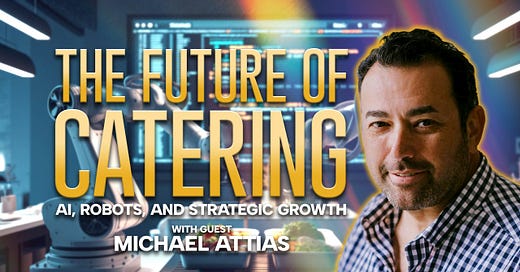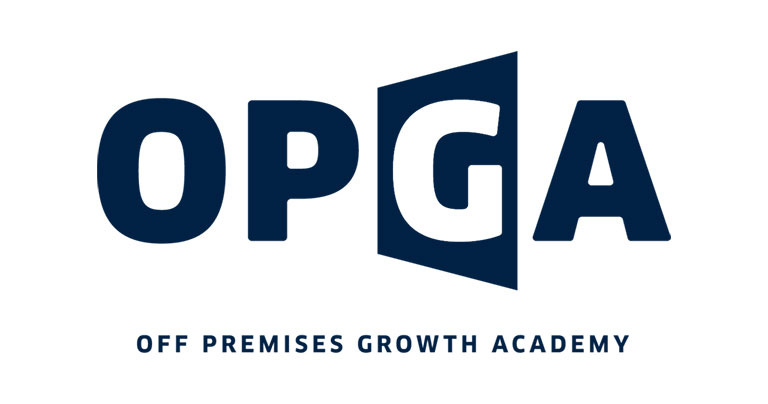The Future of Catering: AI, Robots, and Strategic Growth
In a recent episode of the Catering Cage podcast, host Erle Dardick welcomed back Michael Attias, leader of CaterZen, to discuss the evolving landscape of restaurant catering. Their conversation explored how technology is revolutionizing the catering industry, particularly through AI integration and automation, while emphasizing the continued importance of strategy, education, and community.
Attias highlighted the fundamental disconnect many restaurants face with catering operations: trying to process catering orders through traditional point-of-sale systems rather than specialized catering management software. He explained that catering requires unique production planning capabilities since it's predominantly forward-looking, with batch-based production that differs significantly from in-store or takeout operations. CaterZen's specialized kitchen display system for catering allows restaurants to manage this distinct workflow efficiently.
The conversation took a fascinating turn as they discussed the inevitable progression toward automation in kitchens. Both experts agreed that we're approaching a future where AI will take orders, manage production schedules, and potentially even coordinate robot-assisted preparation and delivery. As Attias noted, "We're headed there for everything in life, not just this." However, they balanced this technological enthusiasm by acknowledging potential societal impacts of widespread automation.
Sponsored by:
Despite potential economic slowdowns, Dardick and Attias emphasized that this is precisely the time for restaurants to invest in catering strategies. Attias challenged restaurant operators to recognize their competitive advantage over dedicated caterers: "If you're a dedicated caterer and you have to order specific food for a customer... the restaurant advantage is it's food they're selling in the restaurant." This creates buying power and inventory flexibility that can help restaurants capture business during economic uncertainty.
Both industry veterans stressed the importance of investing in people, technology, and sales skills during slower periods to prepare for future growth. Attias reinforced that catering can potentially double a restaurant's profits, making it worth strategic investment. "You'll spend $20,000 on deck ovens but you don't think about spending money in catering," he observed, highlighting the industry's historical undervaluation of sales and marketing.
The conversation concluded with reflections on community building in the catering space. Attias explained his support for CaterLink, an industry community initiative, saying: "When you make the industry better, it helps me indirectly." His philosophy centers on mutual growth and problem-solving rather than competitive isolation. This collaborative approach represents the kind of forward-thinking leadership that will continue driving innovation in restaurant catering as the industry navigates both technological advancements and economic challenges.










